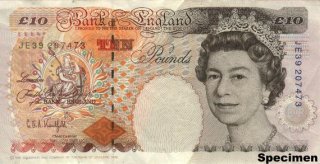With Greece’s debt rated ‘junk’ what effect will it have on the rest of Europe and the UK?
Stephine Flanders writes that 
“Like other governments that are borrowing a lot, ours would be vulnerable if international investors decide, overnight, that sovereign debt isn’t a safe bet after all. We recently won the chance to host the Olympics. But there the similarity ends…
That may change. We may, after all, have some serious political uncertainty coming down the track. But market movements today are a good reflection of the distance between London and Athens.
Investors may worry a lot more about Britain’s public finances than they did a few years ago. But they worry half as much about it as they worry about Greece.”
Its worth a read you can find it here.
Why does this matter? Well think back to the banking crisis two years ago and the knock on effect that one shake can have on a nation. Imagine rather than banks whole nations collapsing. Economist Jonathan Loynes, of Capital Economics, said that Greece could be a “sovereign equivalent” of Lehman Brothers; the bank which started the collapse.
Will we have to bail out a whole country? Several countries? Time will tell.
We’re not out of the woods yet.

